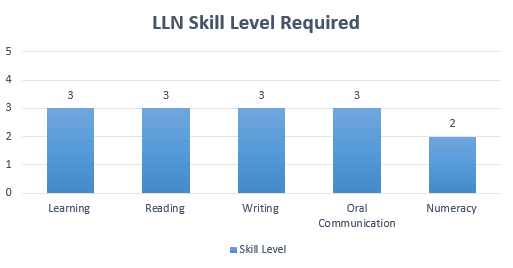Whether you’re looking for a new career path, a job to work while you’re completing a degree, diploma or certificate, or are simply curious to find out more, you may be interested in learning about what a construction job entails. As a construction worker, you may find yourself assisting with the building or removal of houses and commercial properties, the creation of roads and other infrastructure, or helping electricians, plumbers or painters with their jobs.
In today’s article, we run through a construction job description, including some of the necessary responsibilities, duties, skills, and qualifications.
Who it could suit
A construction worker job would likely best suit someone who is passionate about building, creating, and improving new structures. So, if you’re interested in architecture, design, managing, or working on construction sites – this may be the perfect job for you. Construction workers typically work under an experienced supervisor or manager and should take direction well along with having good interpersonal skills.
Responsibilities and duties
There are many different types of construction jobs, and depending on the path you wish to go down, the types of responsibilities and duties you may take on can vary. For example, you could find yourself working in the office assisting with the management of projects and clients, or you may be out in the field removing debris, tending to equipment, or laying bricks. However, no matter what path you take, there are some general responsibilities and duties that most construction worker jobs entail. So, what does a construction worker do? Below are a few examples of tasks you may find yourself doing in the role:
Operating equipment
Whether it’s a cement mixer, mitre saw, drills, jigsaws, levels, or other items, you’ll likely need to know (or be willing to be taught) how to safely and efficiently use the equipment on the job site you work at. Along with a white card, there are several equipment-based qualifications/licences you may wish to obtain for your position. Examples of this include forklift and excavator licences.
Assisting with project management
From checking in with clients to ensure they’re happy with the progress of the project, to ensuring all job sites are up to compliance with health and safety regulations, or attending meetings, there are many potential ways you could be utilising your management skills in a construction worker role.
General labour
Carrying equipment to the job site, moving materials from one place to another, or helping with small tasks such as painting, cutting, and fastening are all examples of general labour you may be tasked with in a construction worker job. The type of labour you will engage in will likely change depending on the type of construction your position involves.
Cleaning and clearing
A construction worker’s role may include clearing the worksite once work has finished for the day. This can involve removing rubbish and debris, sweeping up sawdust or other materials, picking up tools and returning them to a secure spot, etc.
Skills
There are several skills that can be handy to have as a construction worker. These include:
- The ability to work cohesively with others
- An eagerness to learn
- Good communication abilities
- Time management skills
- Organisation
Qualifications and licences
You generally don’t need previous construction experience to begin in an entry-level construction worker role. However, you will need to obtain a white card. White cards are compulsory for construction workers in Australia. A white card course covers many elements of safety in the construction workplace, such as how to identify hazards, respond to incidents, and reduce the risk of injury.
Express Online Training is a registered training organisation (RTO) providing Nationally Recognised Training across Australia. A white card can currently be completed online in many Australian states, however, in South Australia, Northern Territory, and Australian Capital Territory, you’re required to complete your white card course through a face-to-face learning institute. Our online white card courses allow you to complete your white card at your own pace, at a time that suits you. This is particularly helpful for those working or studying full-time, or with family duties.
Additional licences can be obtained to expand your job prospects. For example, if you wish to drive a forklift, operate an excavator, or other types of equipment used on construction sites, you’ll need to have an appropriate licence.
There are also several courses and qualifications that may be beneficial for your role. These include certificates and diplomas. The construction worker qualifications you choose to pursue will depend on your interest and the type of construction you work in or wish to work in. For example, if you want to become a site manager, you may wish to complete a diploma or bachelor degree that can assist you in obtaining this role. Keep in mind that these qualifications can take some time to complete.
Construction worker roles are varied; there’s no one specific job description. However, the roles and skills described above are some of the common ones you may encounter in this industry. With the right qualifications and licences, and a willingness to learn, you could be on your way to a successful career in construction.



